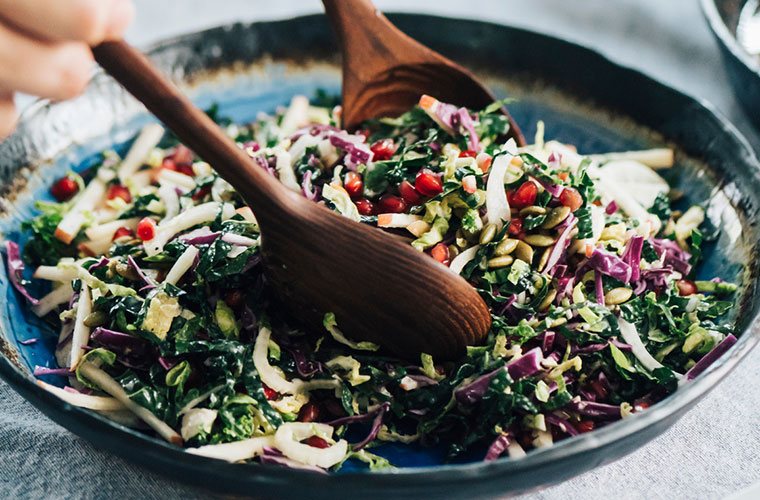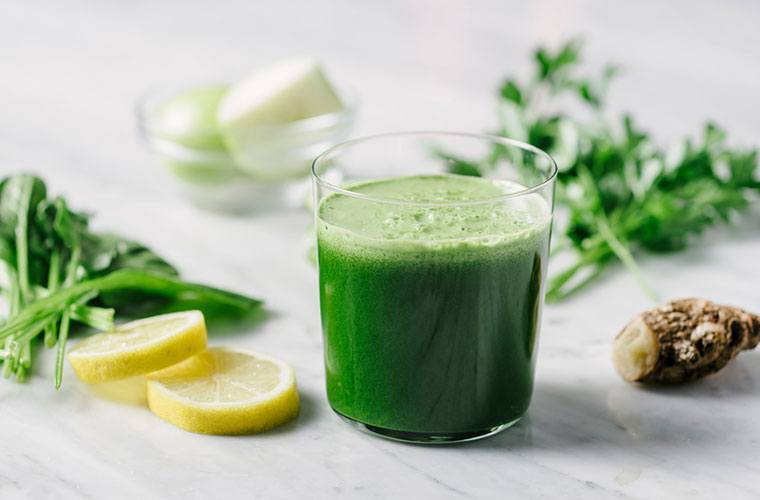There's a rumor being whispered in certain health circles—have you heard it? It's that a scary connection between kale and your thyroid can supposedly throw your whole body out of whack. Turning to your unofficial online doctor (you know, Google) will have you convinced that too much of the power green will inhibit iodine production and cause your thyroid to become enlarged. (Yikes, right?)
How much kale is too much and when do you need to actually be worried? Here, holistic nutritionist and Doing Well founder Daphne Javitch sets the record straight.
Should you be worried about your kale consumption? Keep reading to find out.

Making sense of goitrogens
"First of all, if you're going to start worrying about your kale intake, you should know it's not just kale," Javitch says. "It's all cruciferous goitrogens." Goitrogens are compounds that can disrupt your thyroid's iodine uptake, making it difficult for the organ to create its hormones (mainly triiodothyronine and thyroxine, which help regulate your metabolism). And the list of veggies that contain them is a lengthy one: arugula, cauliflower, broccoli, bok choy, and Brussels sprouts, to start.
Sounds scary, but is there any real cause for concern? "Here's the thing, if you have an iodine or selenium deficiency that you are aware of and have been tested for, you are more vulnerable to being affected by these veggies. But it would take a lot of them [to be detrimental]," Javitch says.
She explains that you can find out if you have a deficiency by taking a simple blood test at your doctor's office. If it turns out that you do have a deficiency, then you can still enjoy your favorite green juices and kale—just not every single day. "It is something to be aware of—the claim isn't completely made up," Javitch says. "Your thyroid is extremely sensitive to stress, infection, radiation, and leaky gut. Every women in her 30s or older should get tested once a year for it."

How to keep your thyroid happy—and have your green juice, too
One way to help counteract goitrogens is by cooking your veggies. "It changes the chemistry," Javitch explains. She also suggests switching up your green juice and salad blends. "I have a thyroid imbalance, so I make a lot of green juices with cucumber, celery, and fennel instead of kale," our expert reveals.
Another one of her thyroid balancing tips: upping your iodine intake by filling up on seaweed and other sea vegetables. "You can balance it out," she explains.
But Javitch stresses that overall, women should not stop eating kale and other cruciferous vegetables because they're freaked out by goitrogens. "These foods protect against cancer, heart disease, and are full of vitamins and nutrients," she says. "Those benefits far outweigh the risks. You'd have to be really committed to your kale for there to be a problem."
Since your relationship with kale isn't ending, this genius de-stemming trick is worth learning. And if you're experiencing salad fatigue, these recipes will help you switch things up.
Loading More Posts...